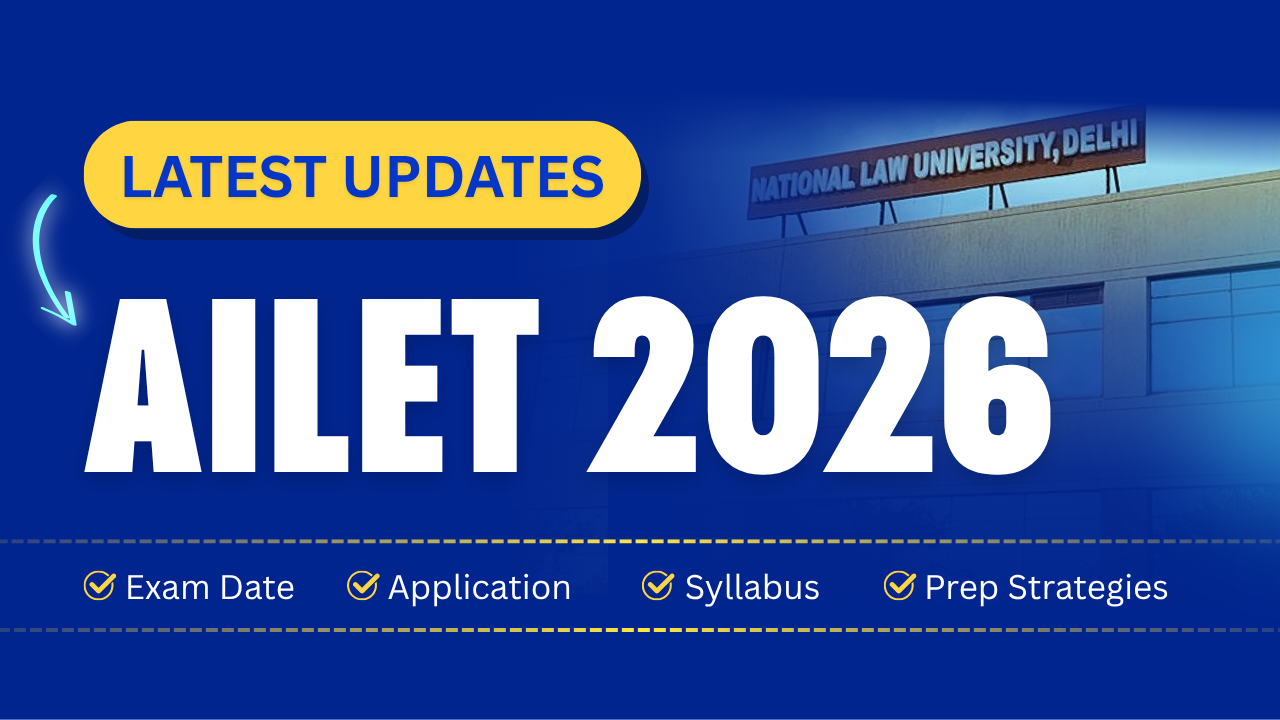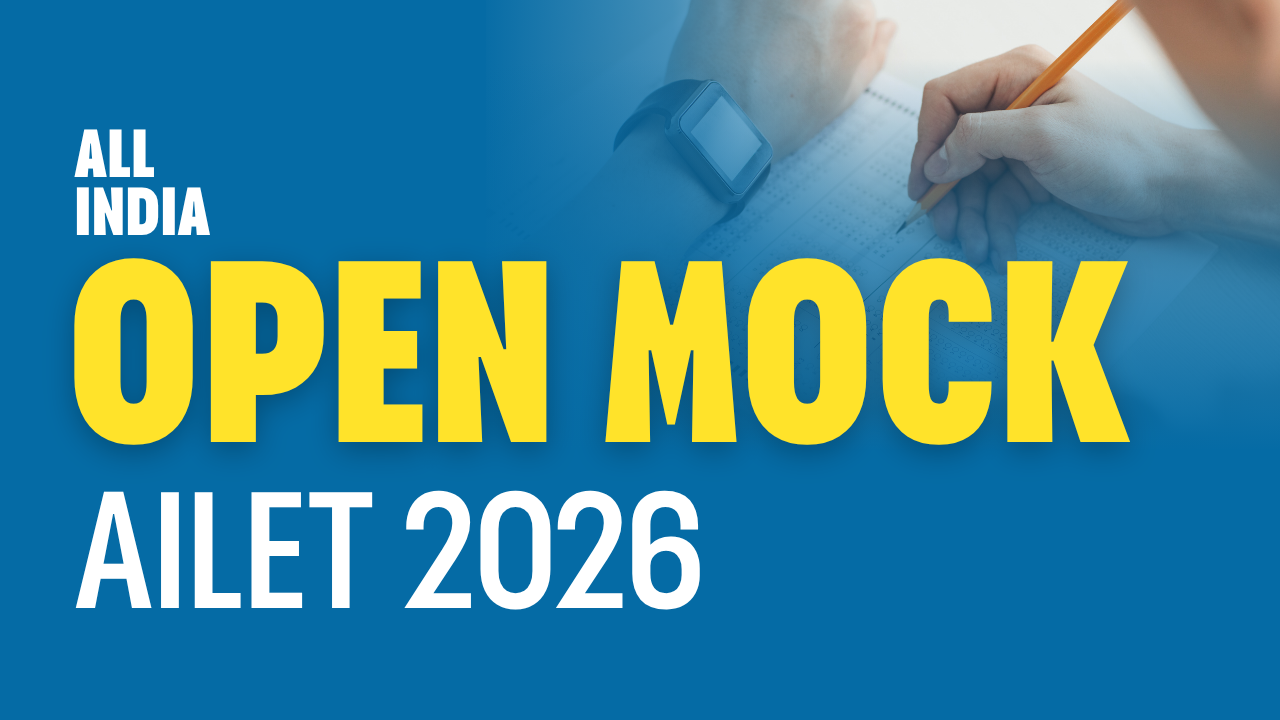By I May 22, 2024
As CLAT 2025 approaches, the competition intensifies, and the stakes are higher than ever. This guide aims to provide aspiring law students with a comprehensive strategy to tackle the exam effectively. From understanding the exam's structure to mastering key sections and managing stress, this article covers all aspects to ensure a well-rounded preparation. We'll share expert tips and insights that can significantly boost your chances of cracking CLAT 2025 on your first attempt.
Key Takeaways
- Gain a thorough understanding of the CLAT 2025 exam structure to strategize your study plan effectively.
- Develop a personalized and strategic study schedule that aligns with your learning pace and exam timelines.
- Master each section of the CLAT by employing targeted strategies and practicing extensively.
- Utilize technology and online resources to enhance your preparation and stay updated with the latest study materials.
- Maintain a balanced approach to studying and well-being to manage stress and stay motivated throughout your preparation.
Understanding the CLAT 2025 Exam Structure
Key Components of the Exam
The CLAT 2025 exam structure is designed to assess a wide range of skills across various subjects. It primarily consists of multiple-choice questions (MCQs) that cover five key areas: English Language, Current Affairs, Legal Reasoning, Logical Reasoning, and Quantitative Techniques. Each section is crucial and contributes significantly to the overall score. Understanding the weightage of each section is essential for prioritizing study efforts effectively.
Types of Questions to Expect
Candidates should expect a mix of question types in the CLAT 2025, including comprehension-based questions, logical analysis, and application-based queries. This variety ensures that the exam evaluates both the depth of knowledge and the ability to apply it in different scenarios. Emphasizing comprehension-based questions can help in mastering sections that require critical reading and understanding.
Time Management Strategies
Effective time management during the exam is critical for success. Candidates are advised to allocate time proportionally to the weightage of each section. Here is a suggested time allocation:
- English Language: 15 minutes
- Current Affairs: 15 minutes
- Legal Reasoning: 35 minutes
- Logical Reasoning: 20 minutes
- Quantitative Techniques: 15 minutes
Adhering to this schedule can help ensure that all sections receive adequate attention and that candidates remain calm and focused throughout the exam duration.
Developing a Strategic Study Plan
Creating a strategic study plan is essential for success in the CLAT 2025 exam. Setting realistic goals is the first step, ensuring that each goal is specific, measurable, achievable, relevant, and time-bound (SMART). Choosing the right study materials involves selecting resources that cover all aspects of the CLAT syllabus comprehensively. Effective scheduling of study sessions is crucial; it involves planning your study time around your peak productivity hours and ensuring a balanced approach to all subjects.
Setting Realistic Goals
Begin by defining what success looks like for your CLAT preparation. Use tools like the CLAT Possible Progress Tracker to monitor your improvements and adjust your goals accordingly. This structured approach helps maintain focus and motivation throughout your preparation journey.
Choosing the Right Study Materials
Select materials that enhance understanding and retention of information. Incorporate active learning techniques such as mind mapping and group discussions, which have been shown to improve comprehension and retention significantly. Quality materials combined with effective learning strategies form the backbone of a successful study plan.
Scheduling Study Sessions Effectively
Customize your study timetable to fit your personal needs and daily routine. Allocate time wisely among different subjects, focusing on your weaknesses during your most productive hours. This tailored approach ensures maximum efficiency and coverage of the syllabus, setting a solid foundation for exam success.
Mastering Key Sections of the CLAT
Tackling the Legal Reasoning Section
Legal Reasoning is pivotal for CLAT aspirants. It involves understanding complex legal scenarios and applying legal principles. Focus on landmark judgments and recent legal amendments to enhance your analytical skills. Practice with a variety of case studies to ensure a comprehensive grasp of potential exam questions.
Strategies for the Logical Reasoning Section
Logical Reasoning tests your ability to analyze and deduce information. Start with basic puzzles and gradually move to complex argument structures. Use daily practice to sharpen your reasoning skills, ensuring you can handle the pressure during the actual exam.
Improving Reading Comprehension Skills
This section demands a high level of comprehension and the ability to infer information quickly. Regular reading of diverse materials, especially daily news, can significantly boost your speed and understanding. Structured practice using past CLAT papers will also help in familiarizing with the exam pattern and question types.
To excel in CLAT 2025, a balanced approach to mastering each section is essential. Prioritize areas based on their weightage and your comfort level with each topic.
Techniques for Effective Revision
Utilizing Mock Tests
Mock tests are a cornerstone of effective revision strategies, providing not only a means to assess knowledge but also to improve time management and exam temperament. Regularly scheduled mock tests simulate the actual exam environment, which helps in identifying weak areas and improving them systematically. Incorporate mock tests into your study plan at least once a week to track your progress and adjust your strategies accordingly.
Reviewing Past Year Papers
Reviewing past year papers is crucial for understanding the pattern and level of difficulty of the questions. This practice not only familiarizes you with the types of questions but also aids in recognizing recurring themes and important legal principles. Make a habit of analyzing these papers to better predict and prepare for the potential questions in the upcoming exam.
Focused Revision Sessions
Focused revision sessions should be strategically planned to cover all key areas systematically. Use tools like flashcards and mind maps to enhance memory retention and understanding. Allocate specific times for revising different subjects or sections to ensure comprehensive coverage. This structured approach helps in maintaining a steady pace and avoiding last-minute cramming, which is often less effective.
Managing Stress and Staying Motivated
Maintaining a Healthy Study-Life Balance
Achieving a healthy study-life balance is crucial for minimizing stress during your CLAT preparation. Plan your study schedule in a way that includes time for relaxation and personal interests. This approach not only prevents burnout but also keeps you mentally fresh and more productive during study hours.
Techniques for Stress Management
Effective stress management techniques are essential for maintaining focus and achieving peak performance. Techniques such as mindfulness, regular physical activity, and sufficient sleep play a significant role in managing stress levels. Incorporating these practices into your daily routine can help you stay calm and composed throughout your preparation period.
Staying Motivated Throughout Preparation
Staying motivated is a continuous effort that requires both internal and external support. Seek guidance from mentors, join coaching institutes, or consider online courses for additional support. Maintain a positive mindset and believe in your abilities, as these are key to staying motivated and overcoming the challenges of CLAT preparation.
Leveraging Technology in CLAT Preparation
Online Resources and Their Benefits
In today's digital age, the use of online resources is a game-changer for CLAT preparation. High-quality video lectures, interactive quizzes, and comprehensive mock tests are readily available, making it easier for students to understand complex topics and track their progress. Utilizing these resources effectively can significantly enhance a student's ability to perform well in the CLAT exam.
Using Apps for Regular Practice
Regular practice is key to mastering the CLAT. Mobile apps provide the flexibility to study anytime, anywhere, which is crucial for efficient preparation. Apps often include features like daily questions, performance tracking, and personalized feedback, helping students to focus on areas that need improvement.
Engaging with Online Study Groups
Collaboration and peer learning are essential aspects of effective CLAT preparation. Online study groups facilitate discussion, doubt clearing, and sharing of resources among peers. This collaborative environment fosters a deeper understanding of the material and provides moral support during the stressful preparation period.
Navigating the Application and Admission Process
Understanding the application timeline is crucial for prospective CLAT candidates. It's important to be aware of key dates such as application openings, deadlines, and exam schedules. Mark these dates on your calendar to ensure you don't miss any critical deadlines.
Choosing the right law school involves researching various institutions to find one that best matches your career goals and academic needs. Consider factors like faculty expertise, campus facilities, alumni success, and placement records.
Preparing for personal interviews requires candidates to be well-versed in current legal scenarios, personal achievements, and motivations for pursuing law. Practice articulating your thoughts clearly and confidently to make a strong impression.
Remember, thorough preparation can significantly ease the application and admission process, setting a solid foundation for your legal education.
Insights from Successful CLAT Candidates
Study Habits that Made a Difference
Successful CLAT candidates often emphasize the importance of disciplined and consistent study habits. Regular revision and practice tests were pivotal in their preparation. They also recommend focusing on weaker areas and turning them into strengths over time.
Handling the Pressure of the Exam
The ability to manage exam pressure is crucial. Techniques such as meditation, proper sleep, and regular breaks helped maintain their composure. Setting realistic goals and preparing mentally for the exam day were key strategies employed by many.
Last-Minute Tips and Tricks
In the final weeks before the exam, successful candidates suggest refining test-taking strategies and ensuring all concepts are clear. They advise against learning new topics at this stage and recommend focusing on consolidation of knowledge.
Remember, the journey to cracking CLAT is as much about understanding the law as it is about understanding oneself and one's capabilities.
Discover invaluable insights and strategies from those who've aced the CLAT exams in our exclusive section, 'Insights from Successful CLAT Candidates'. Learn from their experiences and apply these lessons to your own preparation journey. For more detailed stories and a wealth of preparation tips, visit our website and dive into the success stories that could shape your future.
Conclusion
In conclusion, preparing for CLAT 2025 demands a strategic and disciplined approach. The strategies outlined in this article provide a comprehensive roadmap to navigate the complexities of the exam effectively. By understanding the syllabus, creating a personalized study plan, utilizing high-quality resources, and maintaining a balanced preparation across all sections, aspirants can enhance their chances of success. It is essential to start early, regularly assess progress, and adapt strategies as needed to ensure a successful journey towards your dream law school.
Frequently Asked Questions
What are the key components of the CLAT 2025 exam?
CLAT 2025 will consist of sections such as English Language, Current Affairs, Legal Reasoning, Logical Reasoning, and Quantitative Techniques.
How can I effectively manage my time during the CLAT 2025 exam?
Practice time-bound tests, prioritize sections based on your strengths, and allocate specific times to each section during preparation and the actual exam.
What study materials are recommended for CLAT 2025 preparation?
Refer to standard textbooks, previous years' question papers, and subscribe to reliable online resources tailored for CLAT preparation.
What strategies can help in mastering the Legal Reasoning section for CLAT 2025?
Focus on understanding basic legal principles, practice application-based questions, and stay updated with recent legal scenarios and judgments.
How can I stay motivated throughout my CLAT 2025 preparation?
Set clear goals, celebrate small achievements, engage in group studies, and maintain a positive outlook towards the preparation.
What are some effective last-minute tips for CLAT 2025?
Revise key notes, avoid learning new topics, take ample rest before the exam, and ensure you are well-versed with the exam pattern and strategy.



